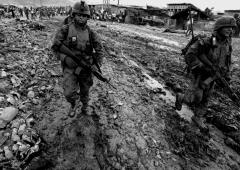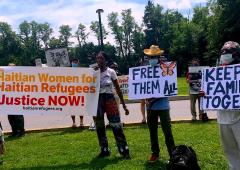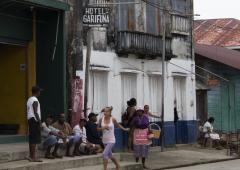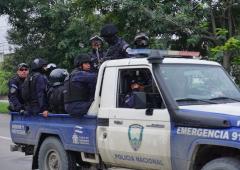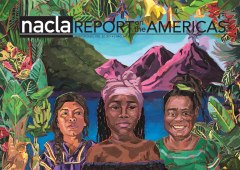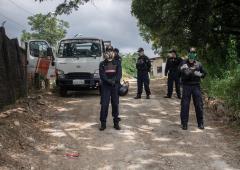Recent Articles in the NACLA Report
In Port-au-Prince, botched NGO and military inventions have fragmented urban space, triggering an explosive proliferation of violent armed groups.
Migrant exoduses from Haiti illuminate how authoritarianism, globalization, and anti-Blackness shape mobility in the Americas and U.S. border policy, regardless of the government in power.
Read the editors' introduction to our latest print issue of the NACLA Report, "End of Empire? Racial Capitalism, Forced Migration, and State Violence in Haiti."
In postwar El Salvador, ecclesial base communities have refocused their radical faith for a new context, remaining active and influential in their communities and political movements.
Memories of the civil war in Livingston’s Afro-Indigenous community excavate an untold history long excluded from the official record.
Questionable homicide numbers, a murky police purge, and a pervasive distrust of authorities in Honduras reveal deep state failures that enable violence and impunity.
Port workers in Belize City took on the powerful export industry and won important concessions, elevating working-class demands and building solidarity for ongoing resistance to defend their livelihoods.
Read the editors' introduction to our latest print issue of the NACLA Report, "Fighting for a People's Isthmus," focused on Central America.
Beyond harrowing scenes of overburdened hospitals and loved ones unable to bury their dead, Ecuador’s coronavirus crisis has also produced carceral involution: “immunological elites” stay home while the poor and working class must risk contagion and incarceration.
Two HIV-prevention activists discuss collective care as an antidote to racial capitalism’s accelerated violence against queer, racialized, and colonized bodies.
Faced with an onslaught of disasters and the injustices of colonialism, Puerto Rican communities have bet on their own survival. Their mutual aid efforts testify to both the power of grassroots organizing and the scale of state neglect.
On Nicaragua’s Caribbean coast, Black and Indigenous forest rangers take environmental protection into their own hands.

